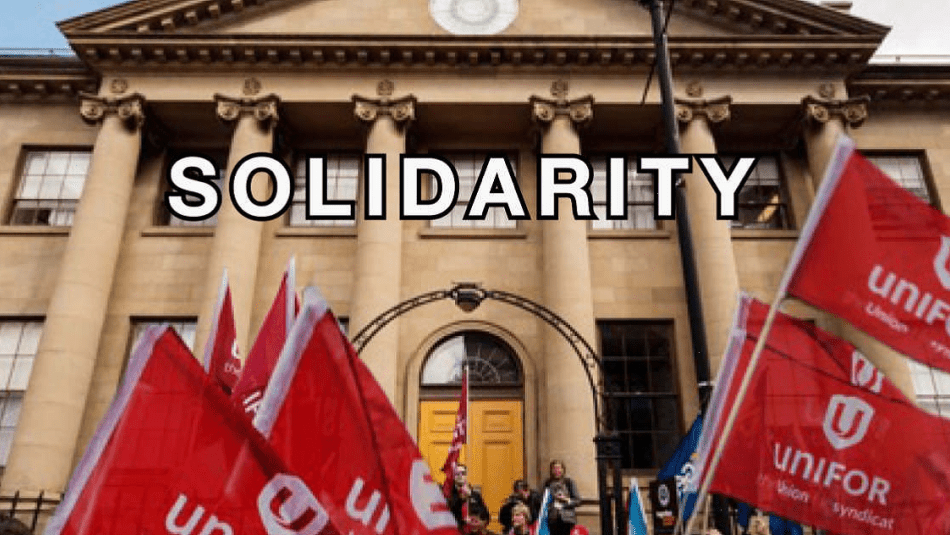Share
Unifor members on the Health Care Council Bargaining Committee spent another four days at the table working to conclude a new collective agreement for members of Locals 4600, 4603, and 4606.
The Council of Unions executive committee has decided to begin bargaining with the Health Care Council. Once that is complete, bargaining will begin for Administrative Support, Nursing and Support Services. Bargaining began between the Council of Health Care Unions and the NSHA and IWK last fall and resumed on April 10, 11, 25 and 26. There are more than 20 additional bargaining dates set this summer and early fall.
Progress at the table has been very slow. The employers have made it clear that they want complete control of the health and dental benefits plans so they could make unilateral changes to benefits. And they have indicated they want to negotiate changes to sick leave that would negatively impact members.
The provincial government’s decision to impose essential services legislation has had a direct impact on negotiations. Essential services negotiations are very complicated and detailed and have been going on since late 2015. The legislation requires the Council of Unions and NSHA and the IWK to agree on how many people in the Health Care Bargaining Unit will be at work in every health care and community care workplace across the province in the event of a strike.
Because there is no conclusion in sight on essential services negotiations, there is no imminent threat of a strike which could be used to force the employers to compromise and conclude a new collective agreement in bargaining. So we expect progress will continue to be slow.
As you may recall, other government legislation has required four unions to combine their collective agreements from across the province into a single agreement for the Health Care bargaining unit. This further complicates bargaining.
And finally, the provincial government’s decision to impose wage restraint and freeze retirement allowances for all public sector employees means that members’ wages would not keep pace with the cost of living.
Despite all the difficulties, your bargaining committee, working closely with bargaining committee members from CUPE and NSGEU, will continue to work hard to negotiate both an essential services agreement and a collective agreement on your behalf.
The Health Care Council of Unions bargaining committee is made up of six members from NSGEU, three from CUPE and one from Unifor. The NSNU is also part of the Health Care Council.
If you have questions or concerns about the bargaining process, please contact your local president.


